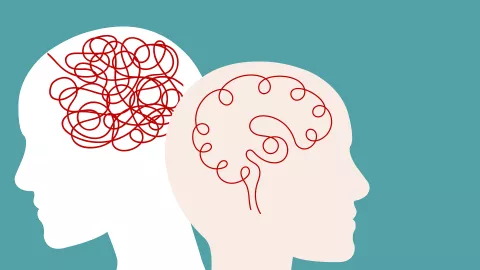Role of religion and spirituality in mental health recovery
The Impact of Beliefs on Mental Health Recovery
Beliefs hold a significant influence on the process of mental health recovery. Whether rooted in religion, spirituality, or personal philosophies, one’s beliefs shape their perspective, coping mechanisms, and ability to navigate challenging circumstances. Individuals who maintain a strong belief system often exhibit higher levels of resilience, hope, and determination in the face of mental health struggles.
Furthermore, beliefs can serve as guiding principles in decision-making and behavior, fostering a sense of purpose and direction in one’s journey towards healing. When individuals align their beliefs with their recovery goals, they are more likely to adopt positive coping strategies, seek support, and engage in effective treatment modalities. By recognizing the impact of beliefs on mental health recovery, healthcare professionals can tailor interventions that integrate and support individuals’ values, ultimately enhancing their overall well-being and fostering long-term resilience.
Understanding the Connection Between Religion and Mental Health
Religion has long been recognized as a significant factor in influencing mental health outcomes. Studies have shown that individuals who actively engage in religious practices often report higher levels of well-being and lower rates of depression and anxiety. This connection can be attributed to the sense of community, support, and purpose that religious beliefs provide. Additionally, faith can serve as a source of comfort and hope during challenging times, helping individuals navigate through struggles with a sense of resilience and optimism.
Moreover, the rituals and traditions associated with various religions can offer a sense of structure and routine, which can promote a sense of stability and reduce feelings of uncertainty and stress. By incorporating spiritual practices into their daily lives, individuals can also find solace in the notion of a higher power guiding and supporting them through difficult experiences. This intersection of religion and mental health underscores the importance of understanding and acknowledging the impact of beliefs on one’s overall well-being.
Spirituality as a Source of Strength in Mental Health Healing
Spirituality serves as a profound source of strength for individuals navigating the complexities of mental health challenges. The deeply rooted beliefs and values held within one’s spiritual framework can provide solace, guidance, and a sense of purpose during times of distress. By fostering a connection with a higher power or embracing spiritual practices, individuals often find a renewed sense of hope and resilience that bolsters their journey towards healing and well-being.
Furthermore, spirituality can offer a framework for understanding and making sense of the adversities one may face in the realm of mental health. Through prayer, meditation, or participation in religious rituals, individuals are able to cultivate inner peace, acceptance, and inner strength in the face of adversity. This sense of spiritual connectedness can foster a sense of belonging and interconnectedness, which can be instrumental in alleviating feelings of isolation and despair that often accompany mental health struggles.
Coping Strategies Rooted in Faith and Spirituality
In times of adversity, individuals often turn to their faith and spirituality as sources of solace and strength. The practice of prayer, meditation, and connecting with a higher power can provide a sense of comfort and guidance during challenging situations. These coping strategies rooted in faith and spirituality can help individuals navigate feelings of anxiety, fear, and uncertainty by fostering a sense of hope and inner peace. By relying on their beliefs and spiritual practices, individuals can find a sense of purpose and resilience that is essential for maintaining mental well-being.
Moreover, faith-based communities and support systems play a crucial role in providing a sense of belonging and connection for individuals facing mental health challenges. The sense of unity and solidarity within religious or spiritual groups can create a supportive environment where individuals feel understood and accepted. Through participation in rituals, ceremonies, and communal gatherings, individuals can find a sense of community that offers emotional support and encouragement. This sense of belonging can further strengthen one’s coping mechanisms and enhance their ability to manage stress and adversity effectively.
The Role of Community and Support Systems in Mental Health Treatment
Building a strong community and support system is an essential component in promoting mental health treatment and recovery. When individuals facing mental health challenges are surrounded by understanding and compassionate individuals, they are more likely to feel supported and empowered to seek help. This sense of belonging and connection can help alleviate feelings of isolation and promote a sense of hope and resilience in navigating the path towards healing.
Community support systems provide a safe space for individuals to express their thoughts and emotions without fear of judgment. By sharing experiences and insights with others who may have similar struggles, individuals can feel validated and understood, fostering a sense of solidarity and camaraderie. In times of crisis or relapse, a strong support system can offer practical assistance, encouragement, and a listening ear, contributing to improved mental well-being and overall quality of life.
Exploring the Relationship Between Mindfulness and Spiritual Practices
Mindfulness and spiritual practices are intertwined in their ability to cultivate a deeper sense of self-awareness and inner peace. The practice of mindfulness encourages individuals to be fully present in the moment, acknowledging their thoughts and feelings without judgment. By focusing on the here and now, individuals can develop a greater sense of clarity and understanding of their inner workings, ultimately leading to improved mental well-being. Similarly, engaging in spiritual practices such as prayer, meditation, or rituals can provide individuals with a sense of connectedness to something greater than themselves, allowing for a deeper sense of purpose and meaning in life.
The relationship between mindfulness and spiritual practices lies in their shared emphasis on introspection, self-reflection, and acceptance. Both practices encourage individuals to delve into their inner worlds, exploring their beliefs, values, and emotions in a non-reactive way. Through the integration of mindfulness and spiritual practices, individuals can enhance their overall emotional resilience, coping mechanisms, and ability to navigate life’s challenges with greater ease and grace. The harmony between mindfulness and spirituality can offer a holistic approach to mental health and well-being, fostering a sense of inner peace and balance amidst the complexities of everyday life.
Utilizing Rituals and Traditions for Emotional Well-being
Rituals and traditions play a vital role in promoting emotional well-being by providing individuals with a sense of structure, continuity, and purpose in their lives. These practices often offer a comforting rhythm and familiarity that can help individuals navigate challenging emotions and experiences. By engaging in rituals and upholding traditions, individuals can find solace, connection, and a sense of belonging within their cultural or faith communities.
Furthermore, rituals and traditions have the power to instill a sense of meaning and significance in everyday life, fostering a sense of resilience and emotional strength during times of adversity. Whether it be through religious ceremonies, cultural practices, or personal rituals, the act of participating in these traditions can offer individuals a sense of control and stability in an ever-changing world. Embracing and honoring these rituals can provide a grounding effect, helping individuals to manage stress, cope with difficult emotions, and cultivate a sense of emotional well-being.
The Significance of Hope and Resilience in Mental Health Recovery
Hope and resilience play a vital role in the journey towards mental health recovery. In the face of adversity and challenges, maintaining a sense of hope can provide individuals with the strength and motivation to persevere. This belief in the possibility of a better future can fuel resilience, enabling individuals to bounce back from setbacks and continue moving forward in their recovery journey.
Furthermore, cultivating resilience can help individuals develop coping mechanisms to better navigate stressors and setbacks. Resilience allows individuals to adapt to new circumstances, learn from their experiences, and grow stronger in the face of adversity. By fostering a resilient mindset, individuals can enhance their ability to overcome obstacles and effectively manage the ups and downs of the recovery process.
Addressing Stigma and Misconceptions Surrounding Religion and Mental Health
Despite the increasing awareness of the importance of spirituality and religion in mental health recovery, there still exists a significant stigma surrounding the integration of these beliefs into traditional treatment approaches. Many individuals fear being judged or misunderstood if they openly express their spiritual or religious practices within a therapeutic setting. This reluctance to acknowledge the potential benefits of spiritual beliefs in mental health treatment perpetuates misconceptions and hinders holistic healing approaches that consider the spiritual dimension of well-being.
Furthermore, some misconceptions persist regarding the role of religion and spirituality in mental health, with some viewing these beliefs as outdated or irrelevant in today’s modern society. However, research has shown that individuals who incorporate their spiritual beliefs into their coping strategies often experience greater resilience, hope, and overall well-being. By addressing and challenging these misconceptions, mental health professionals can create a more inclusive and culturally sensitive approach to treatment that respects and incorporates diverse belief systems for optimal healing outcomes.
Integrating Spirituality into Psychotherapy and Counseling
It is increasingly recognized that incorporating spirituality into psychotherapy and counseling can significantly enhance mental health outcomes for individuals. By acknowledging and addressing the spiritual beliefs and values of clients, therapists can create a more holistic and personalized approach to treatment. This integration allows for deeper exploration of an individual’s sense of purpose, meaning, and connection to something greater than themselves, which can foster resilience and coping strategies in times of adversity.
Moreover, the inclusion of spirituality in therapeutic practices can provide a unique framework for individuals to make sense of their experiences and navigate challenges from a place of inner strength and faith. By tapping into spiritual resources as a source of support and guidance, individuals can find solace, hope, and a sense of interconnectedness that transcends their immediate circumstances. This approach not only enriches the therapeutic relationship but also empowers clients to draw upon their spiritual beliefs as a source of healing and transformation on their mental health journey.
The Influence of Beliefs on Coping Mechanisms and Stress Management
Faith and spirituality play a crucial role in shaping an individual’s coping mechanisms and stress management strategies. For many, their beliefs act as a guiding force during difficult times, providing a sense of purpose and comfort in the face of adversity. Whether through prayer, meditation, or engaging in religious rituals, individuals often turn to their spiritual practices as a source of strength and resilience.
The values and teachings derived from one’s religious or spiritual beliefs can influence how they approach challenges and setbacks in life. By viewing hardships as opportunities for growth and learning, individuals may cultivate a mindset of perseverance and optimism. Furthermore, the sense of community and support often found within religious or spiritual groups can offer a sense of belonging and interconnectedness, serving as a buffer against the negative effects of stress and promoting overall well-being.
Embracing Diversity in Spiritual and Religious Practices for Mental Health Support
Diversity in spiritual and religious practices plays a crucial role in providing holistic support for mental health. Individuals from various cultural backgrounds bring their unique beliefs and traditions that offer a rich tapestry of coping mechanisms and sources of strength. By embracing this diversity, mental health professionals can tailor interventions to align with the spiritual and religious frameworks of their clients, fostering a deeper sense of connection and resonance in the healing process. Recognizing and respecting the myriad ways in which individuals find solace and meaning through their spiritual beliefs can enhance the effectiveness of mental health treatment and promote overall well-being.
Moreover, embracing diversity in spiritual and religious practices can help combat stigma and misconceptions surrounding mental health within different communities. By validating and incorporating diverse belief systems into therapy and counseling approaches, individuals may feel more encouraged to seek help and engage in conversations about their mental health challenges. It is essential for mental health providers to create a welcoming and inclusive environment that honors the many paths to healing, recognizing the power of spirituality and religion as valuable resources in promoting mental wellness.
The Intersection of Science, Religion, and Mental Health in Healing
Advancements in the field of mental health have sparked a growing interest in exploring the intersection of science, religion, and healing practices. While science often emphasizes empirical evidence and research-based interventions in the realm of mental health treatment, religion and spirituality offer a unique lens through which individuals navigate their struggles and find solace. This intersection serves as a bridge between evidence-based practices and deeply held beliefs, allowing for a holistic approach to healing that acknowledges the complexity of human experiences.
The integration of science, religion, and mental health underscores the importance of considering diverse perspectives and value systems in the process of healing. By acknowledging and respecting the beliefs and practices that individuals hold dear, mental health professionals can create a safe and inclusive space for clients to explore the connections between their spiritual values and psychological well-being. This intersection challenges traditional boundaries in therapeutic practices, encouraging a more comprehensive approach that honors the multifaceted nature of human existence in the pursuit of healing and wholeness.







